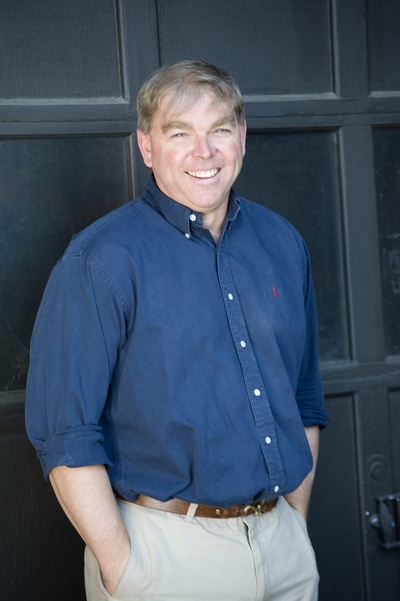
Team communication, excellent people skills are key
By Chris Schmidt
Dave MacPherson, senior superintendent at Commodore Builders, is active both on and off the jobsite. When he’s not working on projects varying in scope and complexity in various markets—including new builds and renovations of both hotels and healthcare facilities—he’s vacationing with family, riding dirt bikes, competing in ski races and salt water fishing. Join Construction Superintendent as MacPherson shares his passion for life through his work in construction, his thoughts on continuing education, safety and more.
(Q) You”ve completed projects in institutional, life science, healthcare, residential and commercial market sectors. How is the execution of each similar and how is it different?
The projects may vary, but the construction process follows the same sequence regardless of the project type. Each sector has different priorities, but my management style and my planning process remain consistent. Institutional projects have demanding deadlines, with kids returning to school. Life science projects require great technical precision and specialized subcontractors. Healthcare projects mandate patient safety as the top priority. Residential projects require quick turnaround and commercial projects invariably have tight budgets. I adapt to the challenges that each project brings. That’s what makes life interesting!
(Q) You worked on the remodel of the Omni Parker House Hotel in Boston, Massachusetts—what types of modifications were required during the remodel to keep it open for guests?
One half of the hotel was shut down to allow a complete gut and rehab. The hotel operated at half capacity while we performed the construction. When the first phase was completed, we swapped sides of the building. It took very careful preplanning and a lot of communication to keep the hotel operational because we had to take down mechanical systems. These items included replacement of all the boilers, hot water heaters and air handling units. That’s not quiet work. The Omni Parker House is the oldest continuously operational hotel in the country. It was management’s top priority to keep it open and hospitable for guests during the process.
(Q) Talk about the most challenging assignment you”ve worked on and what steps you took to overcome these challenges.
Each project has its challenges. Over my 25-year career I have learned how to adapt more quickly to situations, respond better to different personalities and overcome roadblocks faster than when I started. My hardest project was the Mission Park renovation [located in Boston]. I was responsible for renovating over 900 bathrooms and kitchens in four high-rise buildings. The project also included replacing over 4,500 floor-to-ceiling windows and rehabbing 180 townhouses. My diplomatic skills were put to the test as I dealt with the many individual tenants. At first the task seemed daunting—and it was, but we overcame every challenge by getting the management staff and the construction trades to develop a system and a sequence of work that allowed us to make our schedule. We never gave up on our scheduled goals. Even if we passed them, we worked harder on tweaking the work sequence until we achieved our goal. The project was completed early. Perseverance got the job done!
(Q) Name the No. 1 quality you believe an aspiring superintendent should possess and why.
The No. 1 quality to have is excellent people skills. A good superintendent knows how to manage and deal with different types of personalities all day long—from the ditch diggers and architects to the management teams and the owners. You have to be versatile to get the job done and to have all the stakeholders enjoy the process.
(Q) What has been the highlight of your 25 years in the construction industry?
The highlight of my career happens every day that my feet hit the ground at 4:30 a.m. and I greet the day knowing I”m still doing what I love to do—build. As I look around Boston, I get a great sense of accomplishment seeing all of the different buildings that I”ve played a major role in building.
(Q) Share the key rule you”ve implemented with your crew pertaining to safety on the jobsite. How do you enforce it?
I tell my crews to protect the public and the workers at all times. This can only be achieved through meticulous planning and good communication on a daily basis. Nothing happens on my site without team communication.
(Q) How would you describe your management style when dealing with subcontractors?
I maintain a friendly management style without giving up my authority. I”ve always said: do not mistake my kindness for weakness.
(Q) What is the biggest change in the construction industry you”ve experienced over the past two decades? How has that impacted you personally?
As in all fields, the use of electronic media has changed our industry tremendously. It allows me to be more efficient, with better and faster communication between the design team and the field.
(Q) What are your thoughts on continuing education?
I am always interested in learning more about my field. It makes me a better manager, opens my eyes and ensures that I am always on top of what’s happening in my industry.
(Q) If you could choose your ideal project, what would it look like?
My ideal project would be properly designed, perfectly budgeted, well scheduled and profitable. If anyone finds this project, please document it well and enjoy it!


 Join our thriving community of 70,000+ superintendents and trade professionals on LinkedIn!
Join our thriving community of 70,000+ superintendents and trade professionals on LinkedIn! Search our job board for your next opportunity, or post an opening within your company.
Search our job board for your next opportunity, or post an opening within your company. Subscribe to our monthly
Construction Superintendent eNewsletter and stay current.
Subscribe to our monthly
Construction Superintendent eNewsletter and stay current.